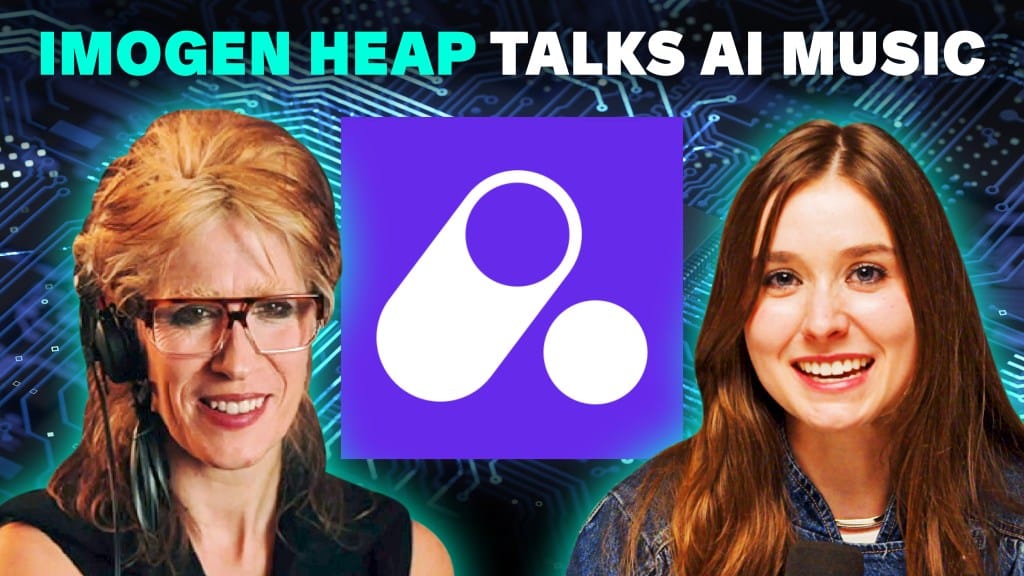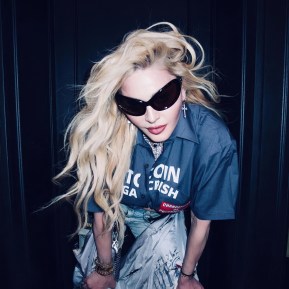Rising Japanese Star Ado on Becoming an Adult, Touring and Evolving: ‘I Felt Like I Leveled Up in a Huge Way’
Written by djfrosty on February 13, 2023

Ado wants to be cool.
As the Japanese singer – who delivered one of the country’s biggest hits in recent years – raced towards adulthood in 2022, however, she realized her definition of cool needed to evolve.
Within the span of years, the now-20-year-old singer had gone from being immersed in Japan’s Vocaloid culture – a genre of music that uses a synthesizing software to make vocals and melodies alike – to an utaite (singers who cover songs by other artists) – to unwittingly becoming the voice of a generation, when her viral 2020 hit “Ussewaa” pegged her as the antithesis to the dull routine of adult life. This was all without a physical release and while keeping her identity completely under wraps, which is not uncommon in utaite culture.
“Understanding the latest trends/ Checking the stock market on my way to work/ Joining a company with pure spirit/ These are the obvious rules for us workers,” she spits on the frenzied electro-rock track, which thumps and pulses and simmers with rage born from helplessness and monotony. She had spent most of her career in a silo, sometimes recording songs in a closet inside her home. At first, “cool” meant brazenly rejecting societal expectations. In her own words, the brash, scathing sound was born from a primal need to resist the hierarchy.
“It was a rebellion against adults and this society, and I really wanted to win,” she tells Billboard. Yet here she was – joining the very contingent she’d scoffed at for the better part of her career.
But Ado is not like most young adults. In fact, she comes with a disarming quietude that most would struggle to reconcile with the pumping anger and scorn of her songs. As time pushed her closer to the other side of the threshold, she felt it was the right moment to broaden her perspective.
Like any teenager, she had once thought that screaming at the top of her lungs, pouring visceral resentment into her songs and outright rejecting the idea of conformity was the way to achieve that. Ask her about it now, she’d probably laugh and say that emotion without self-awareness is a rebel without a cause. “When I started out, I was quite immature,” she admits. “I really wanted to be taken seriously.”
As she expanded her vision for Ado, the artist, throughout 2022, some of her own dreams came true. She released her debut album Kyougen, which peaked at No. 9 on the Billboard Japan Hot Albums chart, and then repeated her success with Uta’s Songs: One Piece Film Red, which reached no. 1 on the same chart.
She’s come to approach her music as less of an outlet and more as an instrument for inspiration: “Going towards the end of the year, I really had proof – through the work that I did, through my performance, through my songs, and getting through challenges mentally as well as within myself – that I had grown. I felt like I leveled up in a huge way.” Her small wins, she says, assured her that she was on the right path.
At first, it sounds like a betrayal of the “young, wild, and free” ethos she’s come to embody, a proverbial “if you can’t beat ‘em, join ‘em” mentality. She would disagree: She’s only becoming more conscientious, not replacing the primordial emotion that underlines her music. It’s an important part of being cool, you see: “[Cool people] are ready to take responsibility for who they are and what they do.”
With one Japanese tour just weeks behind her, and her new Mars arena tour on the horizon – which will take her to 14 venues across Japan between June and September 2023 – Ado sat down with Billboard to discuss her career and growth.
You’ve just wrapped up a series of shows across Japan. How are you feeling?
It was pretty tough, but I was able to connect with my fans and hear their voices. Even though it was tough, when I got on stage, I forgot about everything. Concerts are really fun to do!
What aspects of it did you think were tough?
First of all, I have to say travel. Because you’re moving to so many different places, and then you have to go on stage – of course, being on the stage is fun, but it’s repetitive. You have to be your best self over and over again on stage, each night. That was a bit tough. It was really sort of an internal battle with myself.
You actually did a stream recently where you mentioned that you don’t like looking at performances of yourself. Why is that?
That’s right. It’s really uncomfortable for me. I really don’t like seeing myself in [any] media form – concerts, photos, video footage. Even if there’s a slight shadow of myself or a flicker, I just want to shut down the computer or turn it around so I don’t have to see it.
In that case, how are you preparing for the possibility of becoming more and more famous? I imagine as you are going to be performing at different venues, there’s chances of photos or videos.
I’m quite aware that Ado is loved by the fans, but for some reason… I do equate myself with Ado, the artist, so I do know that I’m loved and people like what I do. But even if I know [what] their objective view [is], the fans’ view of me from the third person and my subjective view [of myself] in the first person, they don’t equate. They don’t match up. So I think there is a discrepancy there.
That sounds like you had trouble loving yourself at some point, even if the fans love you.
You are right in your assumption. I think, at some point, I would really love to be able to look at the footage or photos of myself and think it’s all great and really appreciate myself. See myself the way the fans see me. I think that would make everything much more fun, but I’m not quite there yet.
Is that one of your goals for 2023?
Yes. Not just on an emotional level of just loving myself, but I’d like to be able to achieve that this year through improving my skills.
There’s not a lot of live performance videos that you’ve uploaded from the tour, except for the one at the Saitama Super Arena. What was special about that performance?
The Saitama Super Arena, for me, is really valuable and meaningful because it was the day that my dream came true – and because it came true, it encouraged me to keep singing. So, that concert was very important in my life. That’s why I wanted more people to see it.
This reminds me of a video you uploaded sometime ago, titled “To Everyone Who Was Born In 2002,” where you talked about a blue rose and how it signified dreams coming true. How did you relate to it, especially in context of last year?
Actually, originally, when we had the design for my image, it was only a long-haired girl. There was no rose in the character design. Then, somewhere along the line, we added a red rose and we went with that for a while. Then, I started looking into blue roses and the significance behind them – 2022 was when that happened. Then, I realized that it was connected to dreams coming true, and that message really appealed to me. So I thought: ‘I’ll use this motif’. That’s why I wear the blue rose on my chest, near my heart.
What do you think you’ve been trying to achieve in your music and have those goals changed from your debut till now?
In the beginning, I was expressing that emotional anger quite strongly [through my music]. I really wanted to be taken seriously, and it was a rebellion against adults and this society of adults, and I really wanted to win. Having said that, now I’m 20, and I have become an adult. When I started out, it was quite immature. Now, as opposed to anger being the main motivation, it’s about motivating kids or young people for their dreams to come true. If they have dreams, maybe I could symbolize that, or inspire them to make their dreams come true.
I like that you brought up being an adult. When I was watching “To Everyone Who Was Born in 2002,” I wondered: were you at all disappointed by adulthood not being all that it’s chalked up to be?
I’m not sure if the word “disappointment” is correct – but when I tried being an adult, I realized that you [can’t] just switch it on and off. When I was 19, I realized it’s more like a state of mind that you gradually move into. So, when I did become 20, I wasn’t really shocked or hugely disappointed, but I thought that I wasn’t self-aware enough yet. I grapple with that at the moment as well. But, I will leave it to my future self. I think my future self will be okay.
Vocaloid producer Ine recently spoke about you in an interview, and he thought you were very cool. You’ve mentioned before that you want to be a “cool” artist – what do you think makes an artist cool?
I would say first of all, voice is really important to me. And if they are a songwriter, it would be their choice of words. [But] I really do think it’s about their state of mind and who they are as a person. I think that’s also a big part of being cool – that they’re ready to take responsibility for who they are and what they do.
Sometime ago, you got really emotional in a stream because, in 2022, you hadn’t been able to put out a lot of utaite songs. Did you feel like you were losing touch with your roots?
Yes, I think I was very used to releasing utaite music, and [in 2022] compared to a lot of my other releases, it was much less. So, I think I was a bit emotional and sad about that.
2022 was a big year for Vocaloid as well. One of the things that happened was Billboard Japan launching their Nico Nico Vocaloid Chart. In his interview, Ine said that he was excited but also scared about the development, because Vocaloid originally symbolized a community of people who made music because they loved it. He said: “When there’s the potential for your creations to be recognized for their quality, it also highlights the fact that your creations aren’t getting recognized.” Do you share his emotions?
Ine-san is a producer, and I am an utaite, so there might be a difference [in approach] there, but personally, I am not really scared. But… I can understand as a producer why he would [say that]. Regarding the chart itself being established, I think it’s amazing, because it shows how much Vocaloid music is loved, and many people want to hear it. So, I am really excited about the future of Vocaloid music.

 State Champ Radio
State Champ Radio 





